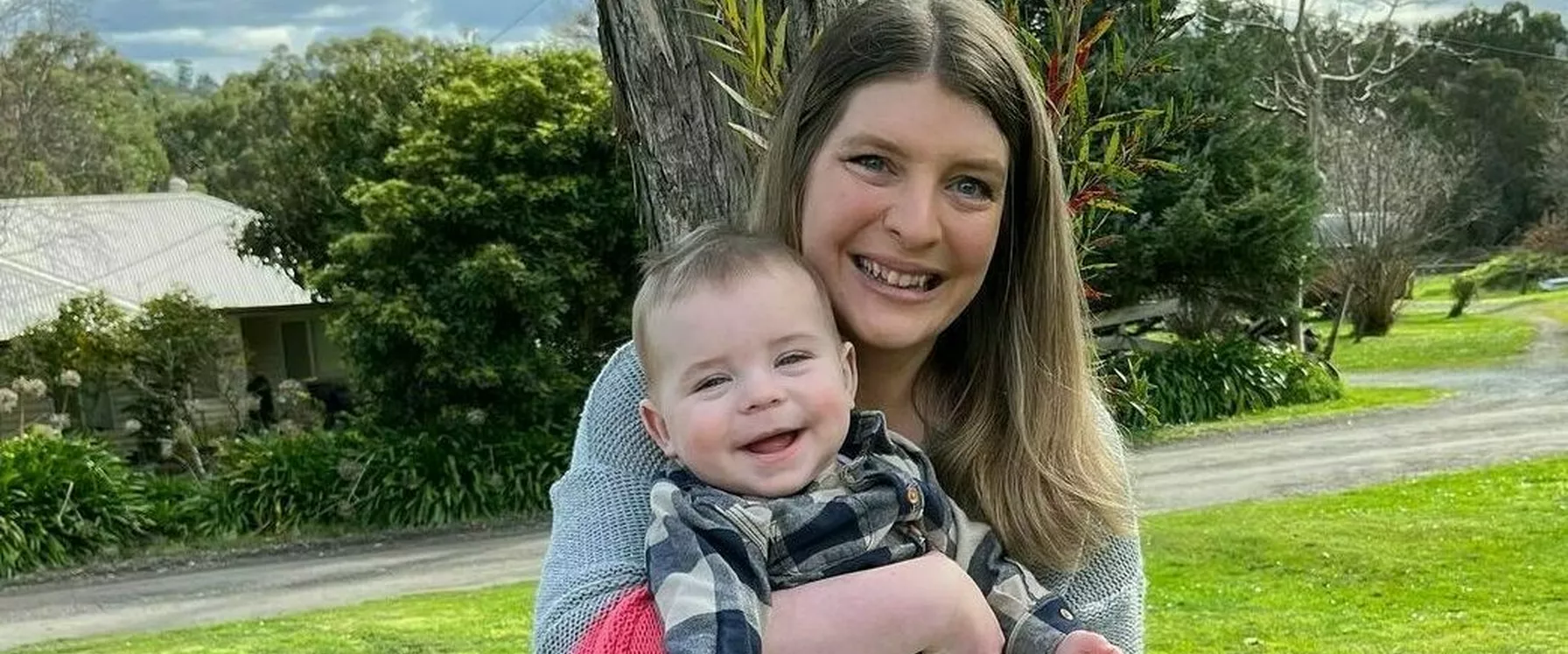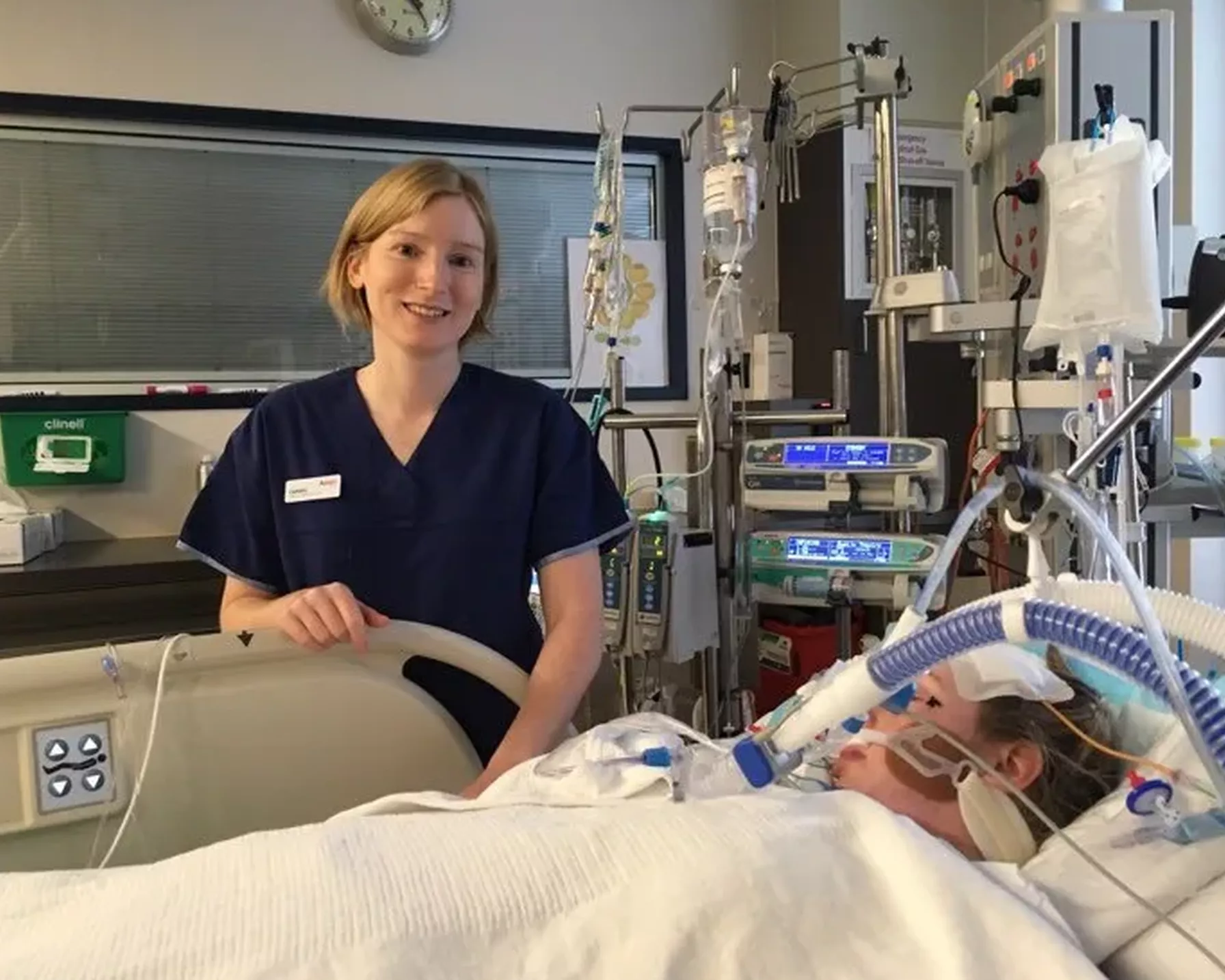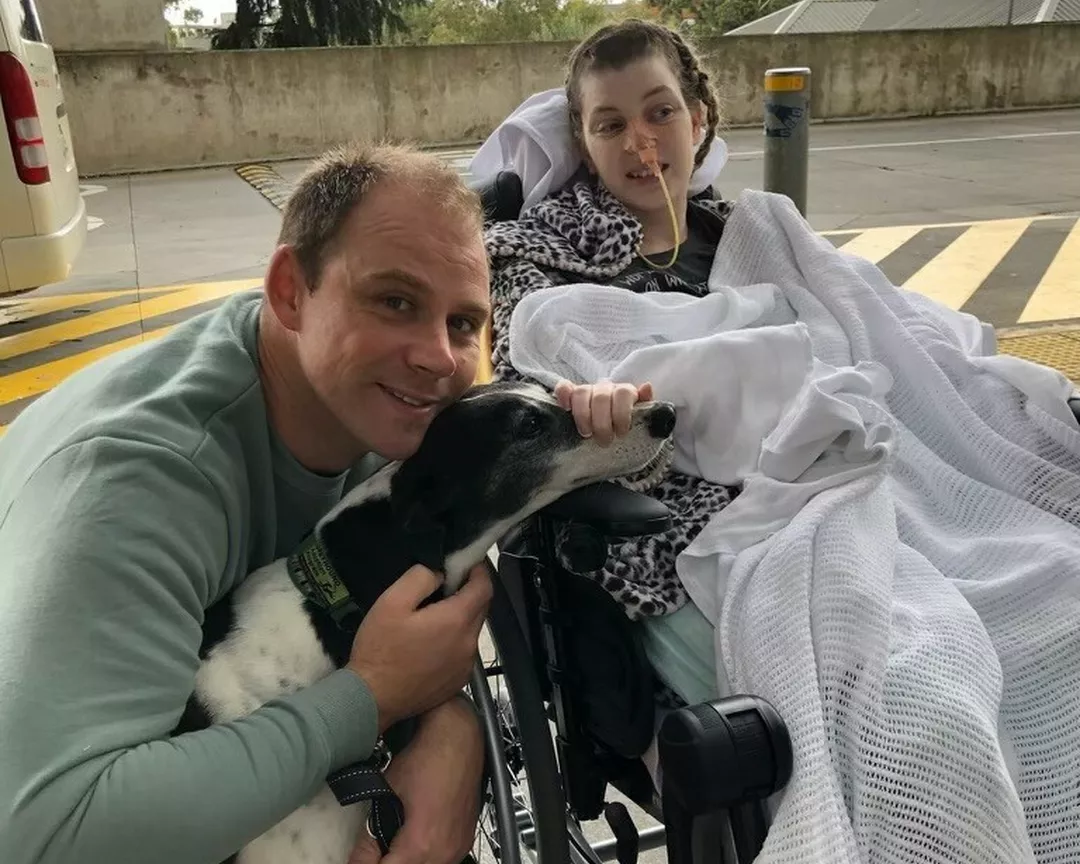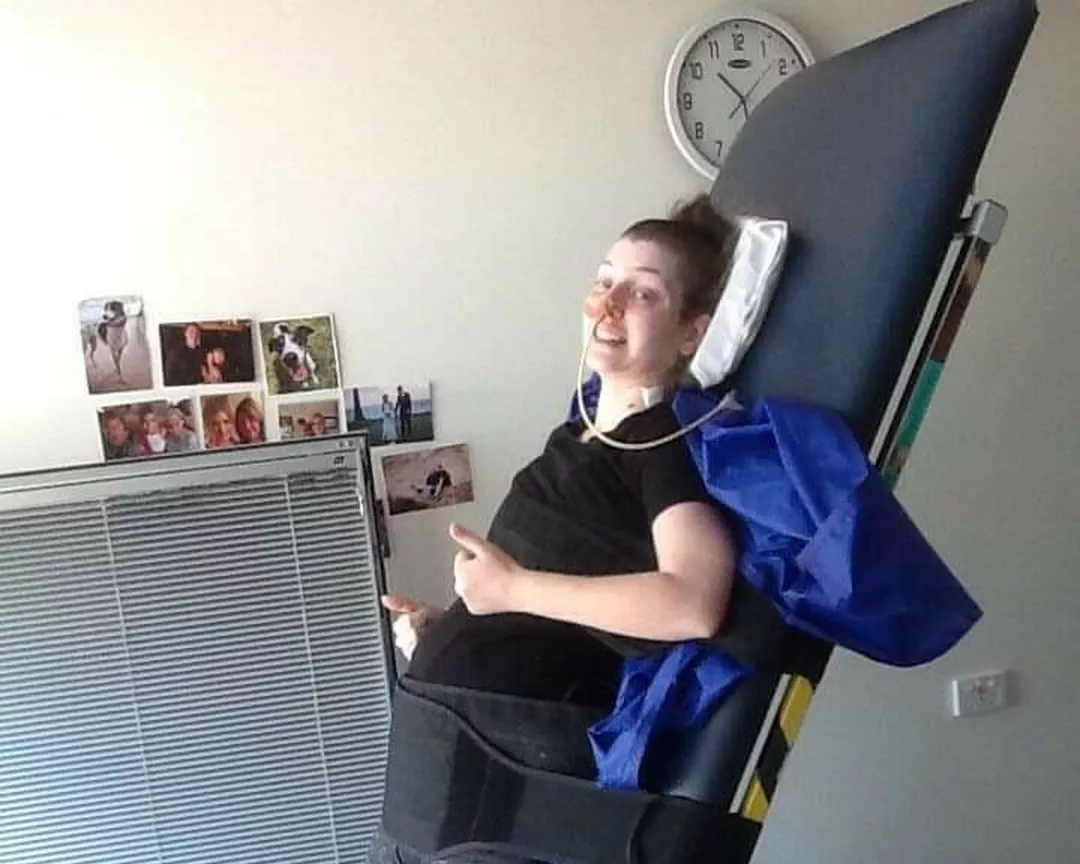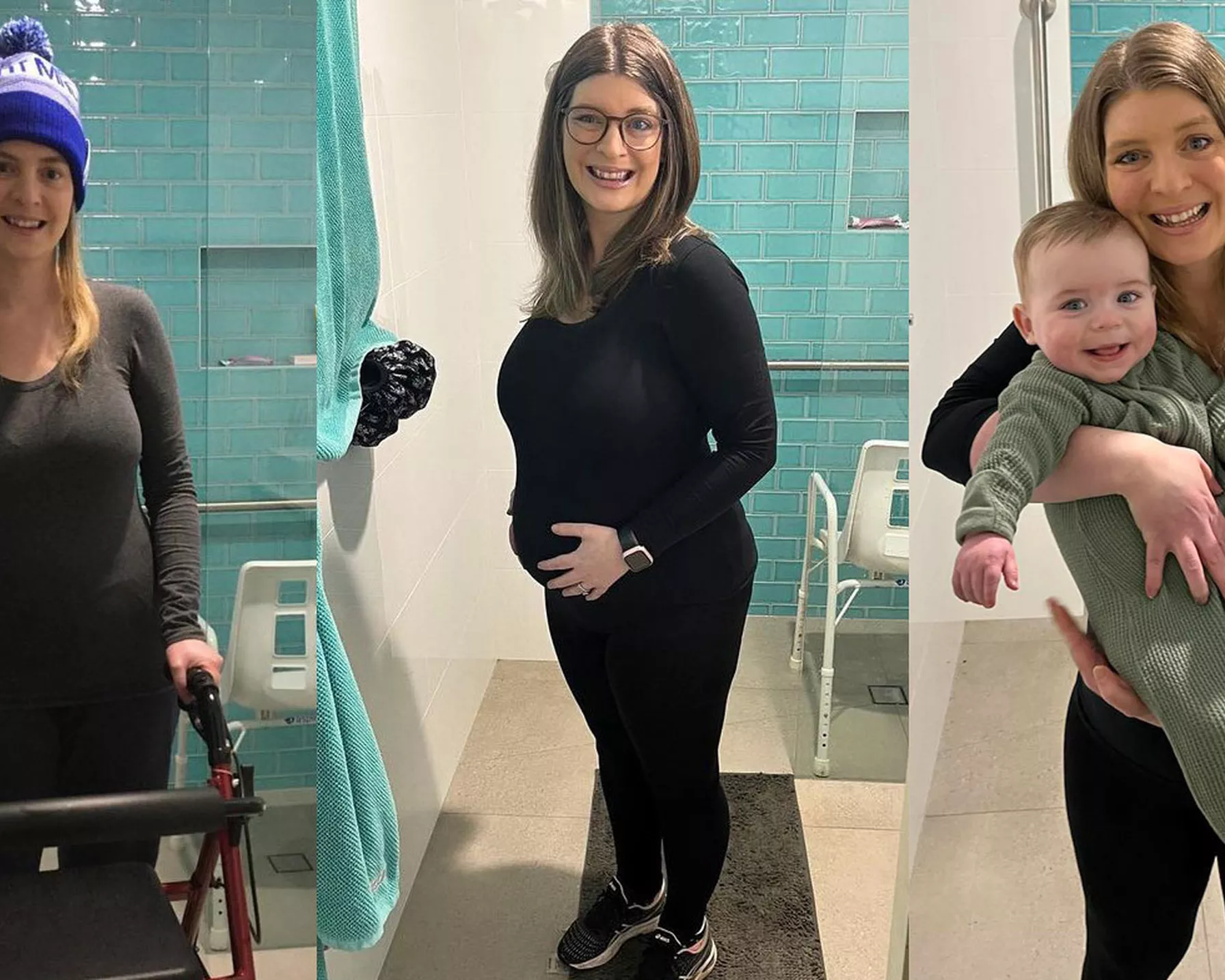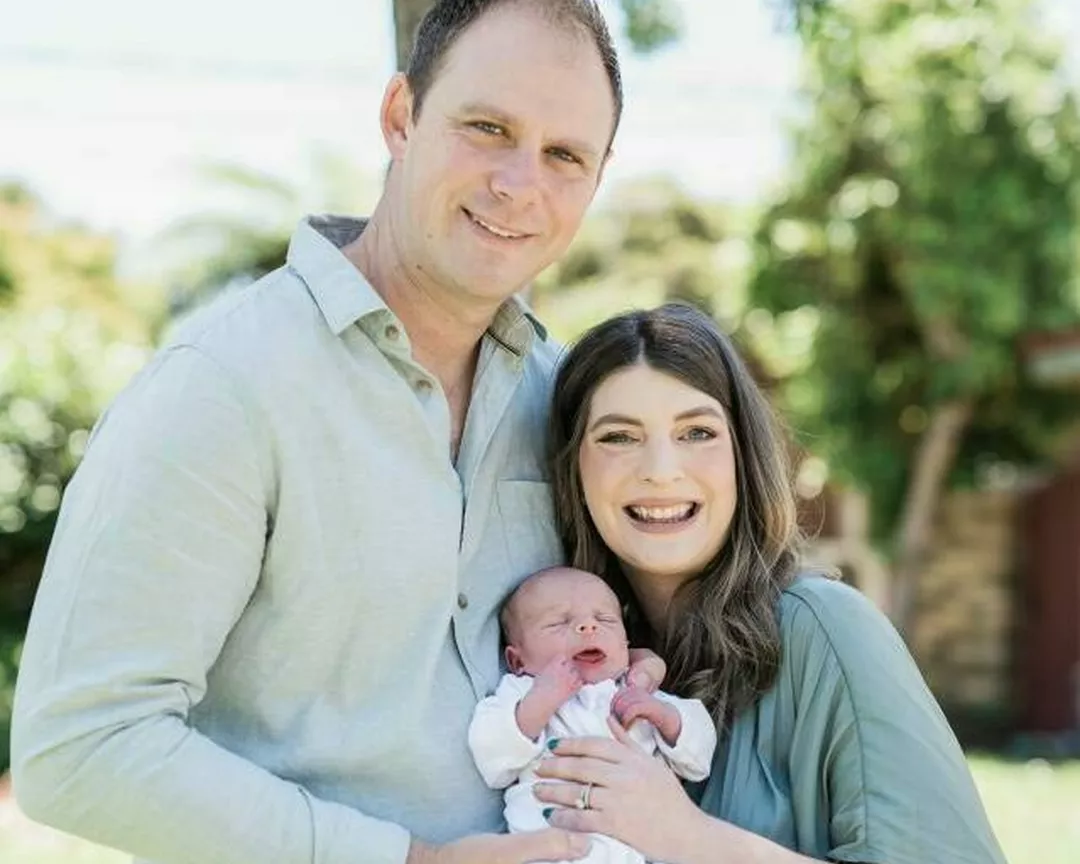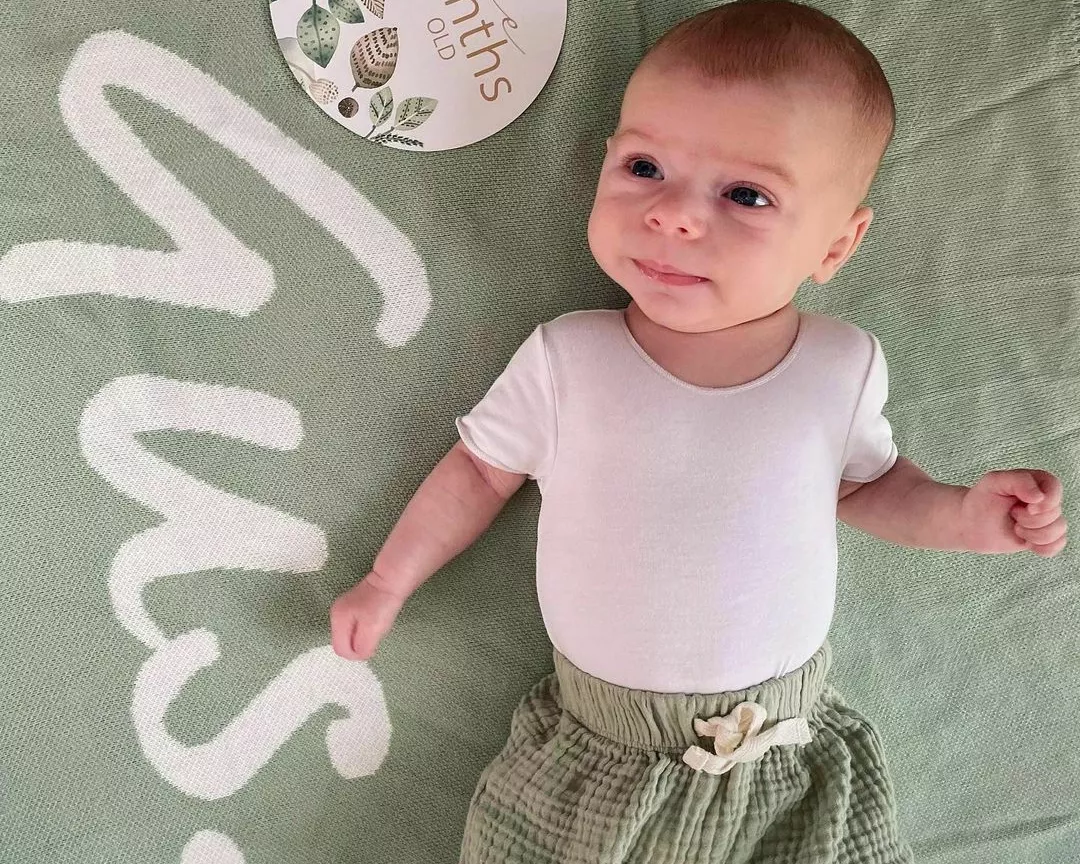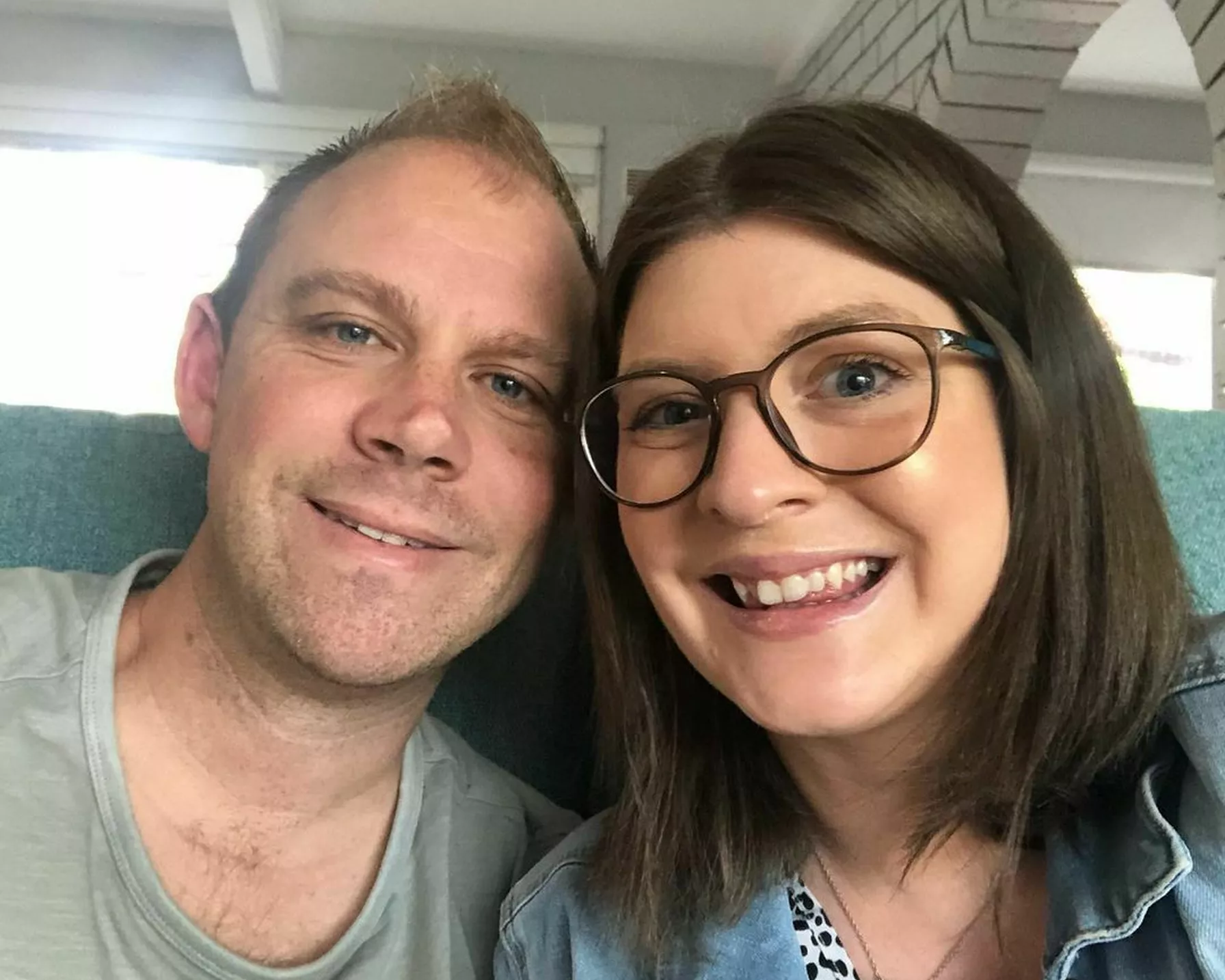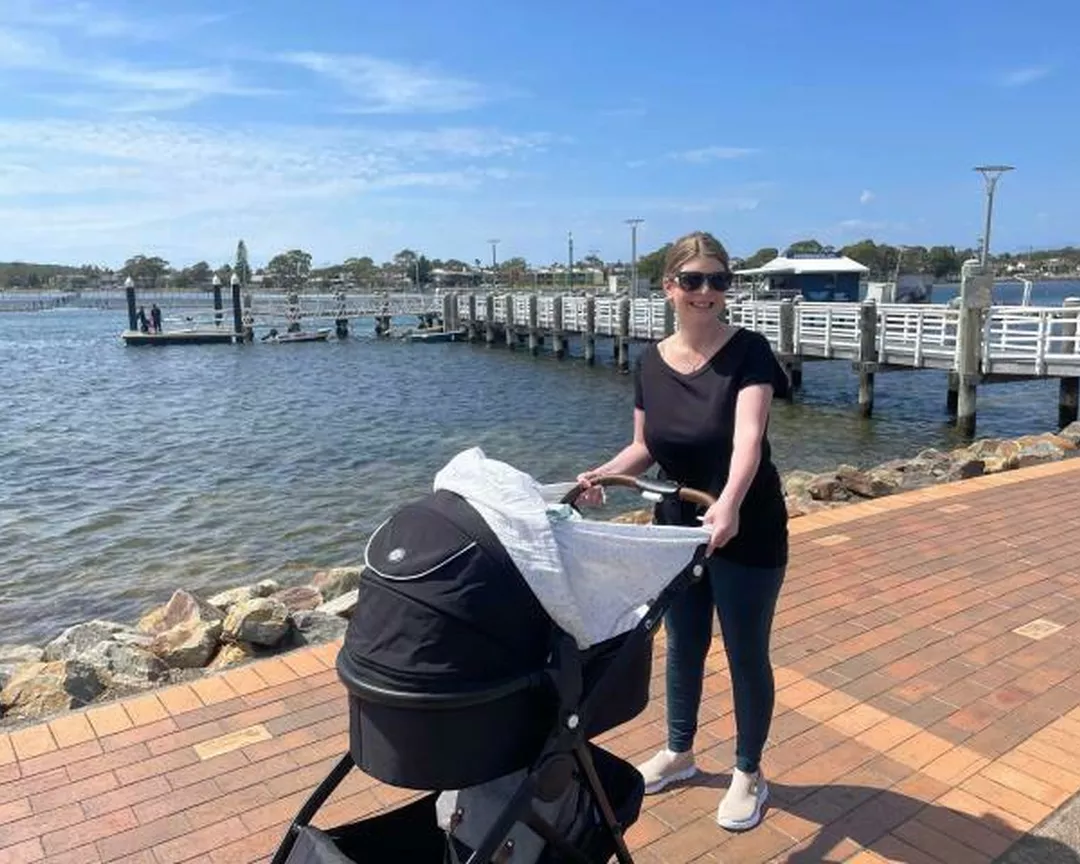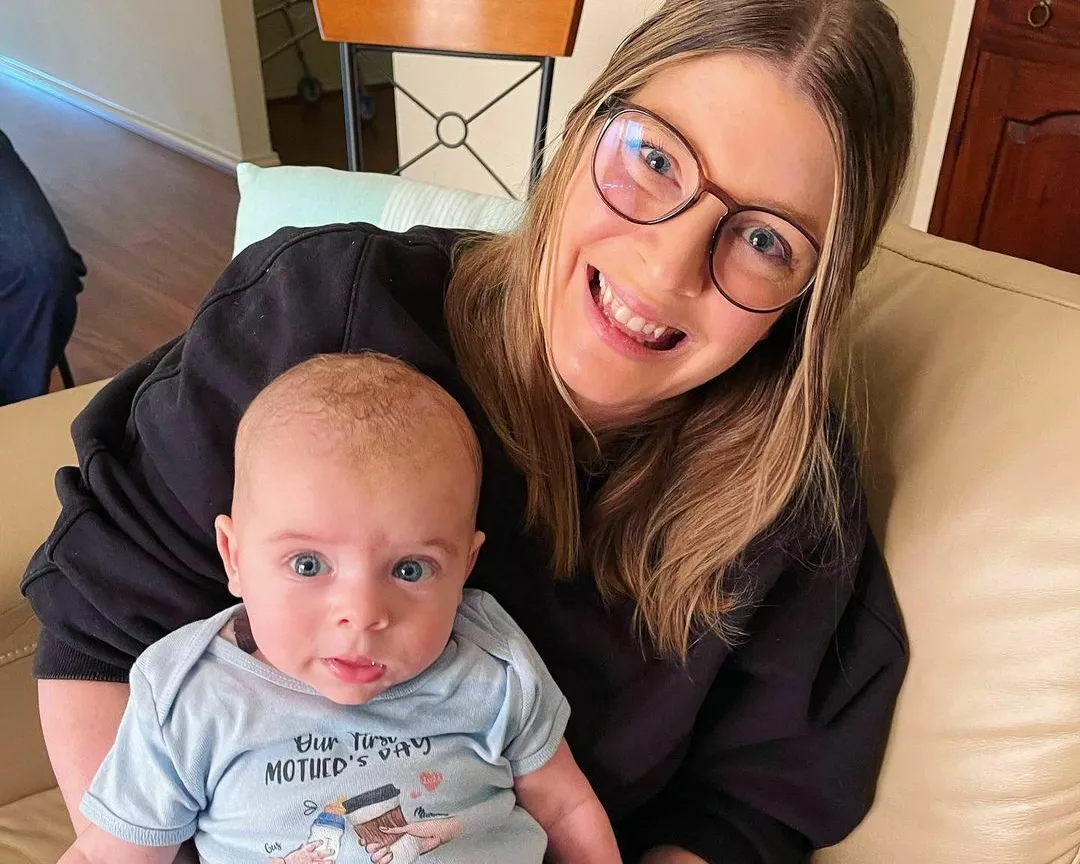Nicole Gallacher almost died after suffering a stroke when she was just 30. Devastatingly, her baby Ned was stillborn. Now she’s named her second son after the healthcare workers that saved her. This is her story, in her own words.
It was March 19 in 2020. A Thursday. I will never forget the date. Melbourne was about to go into lockdown as COVID was rampant and I had taken the day off as a precaution.
I was 22 weeks pregnant and home alone with our dog, Lassy. Suddenly, I got a severe headache.
I’m a school teacher and so is my husband, Dave. I tried to call him, but he was unable to answer his phone because he was in class.
Then I started vomiting and having trouble with my vision. I knew I needed help.
I called my parents. I was terrified. Fortunately, my dad answered and he immediately knew something was very wrong.
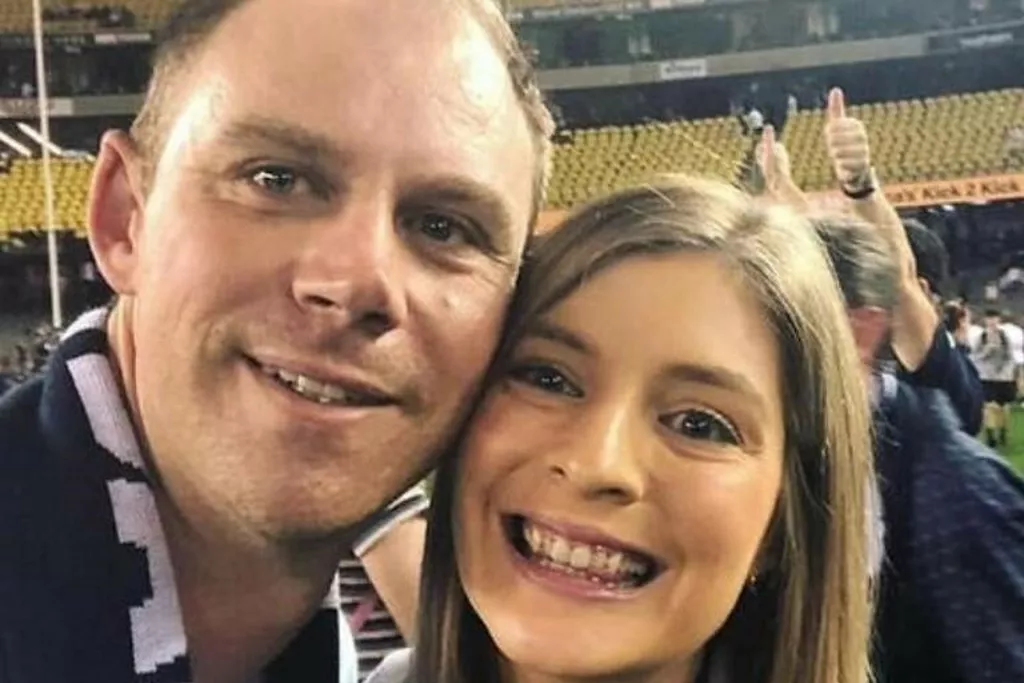
I passed out on the phone to dad. That’s the last thing I remember.
My parents called an ambulance and got straight in their car. Two ambulances and four paramedics raced over to the house and arrived first. They had to break through the door to get to me.
One of the paramedics, Michael, decided to drive to Austin hospital even though it wasn’t the closest. He thought that I might need a brain surgeon.
That decision, and my dad's quick thinking, helped save my life.
When I arrived at hospital, they discovered that I had an AVM (an abnormal mass) on my brain. It had ruptured, resulting in a brain bleed which caused me to have a stroke. I was just 30 years old.
Nicole is incredibly grateful to nurses, like Carmel, who cared for her while she was in ICU and ward.
It took a team of 19 staff to perform the brain, lung and obstetric surgery that saved my life. I had aspirated vomit while I was unconscious.
Tragically, our precious baby boy, Ned, didn’t make it through the stroke. At such an early gestation, he was stillborn.
After the surgery I was in a coma on life support for two weeks.
When I first woke up from the coma, I was told I had a fall. But I couldn't speak. I couldn’t feel Ned in my belly anymore, but I didn’t know what had happened. Where was he?
That was when Dave had to tell me that we’d lost him. It was devastating. And even now, I cannot fully fathom what Dave had to go through.
They didn’t know if I would have any memories or brain damage. It was touch and go.
Nicole had to learn to stand and walk again.
Even before the tube was taken out, I squeezed Dave’s hands three times. We had this thing we did on family holidays – squeezing each other's hands three times means I love you.
He knew, at that moment, that I was OK. And incredibly, my memories were intact.
However, I still had a very long road back and recovery ahead of me.
After the stroke I had to learn how to eat, talk and walk again.
I was in the ICU for two months and then five months in rehab. It was also the height of lockdown, and I went eight weeks without seeing anyone.
That was a huge challenge. The weekends were particularly hard as there was no therapy or distraction.
Eventually, I made it home. And thanks to the kindness of strangers, we had additional modifications done to the house and even a new bathroom donated.
Then, about a year after the stroke, in what can only be described as the greatest blessing and miracle, we found out that we were expecting another baby.
Nicole at home six months (left), two years (middle) and three years (right) after the stroke.
Little Gus.
His full name is Angus Michael Andrew. Gus was my brain surgeon, Michael was my paramedic and Andrew was the deputy director of the ICU.
I can’t put into words how thankful I am to them.
Holding Gus in my arms for the first time, I was bursting with love. I didn’t know this much love was possible. Watching Dave with his son is so beautiful and fills me with so much pride and happiness.
I have promised Gus to be the best version of myself that I can be and for him to one day know that he has a big brother called Ned. He is a great motivator.
Being a mother is wonderful. And while I sometimes get frustrated with my limitations, I have found a way around most of them.
Gus was born on December 6, 2022. Credit (left) Andrew Harrison from Passion8 Photography
I do have some spasticity still in my right side and an intention tremor in my right hand. I also have some balance issues and get very fatigued.
I get very tired from doing simple things like the washing and folding, and we are lucky to get some help through NDIS. Unfortunately, I am still unable to cook as it’s not safe with the tremor in my right hand.
I am also very fortunate that Dave has been so incredible and my rock throughout it all.
I met a woman at the Stroke Awards whose partner left her. Not once did I question or worry whether Dave would turn up the next day. For better or worse he was there. And he was always the highlight of my day.
"Dave has been my rock."
And I am so grateful for all the research being done to help improve stroke recovery.
Every day, slowly, slowly, I am improving. I remember my dad saying to me when I was still at the Austin: ‘You are the tortoise, not the hare’.
When it first happened, I was so overwhelmed and upset and it felt like my entire world had crumbled.
Yes, there are challenges, and your life may look different. But look at me – the best thing of my life happened after I had a stroke. I had Gus.
Gus was named after one of the surgeons, paramedics and ICU doctors who helped saved Nicole's life.
One day soon I hope to get my driver’s licence back and to work again with students, in some capacity.
This journey takes time. Yes, you get knocked down and there are times you want to give up. And that’s OK.
Be patient and be kind to yourself.
Gus is now eight months old. He is the rainbow after the storm, and I couldn’t be more grateful.
You can follow Nicole's journey on Instagram.
If you or a loved one has experienced infant or pregnancy loss and would like support, you can contact Red Nose Australia on their 24/7 Bereavement Support Line on 1300 308 307 or go to rednose.org.au
